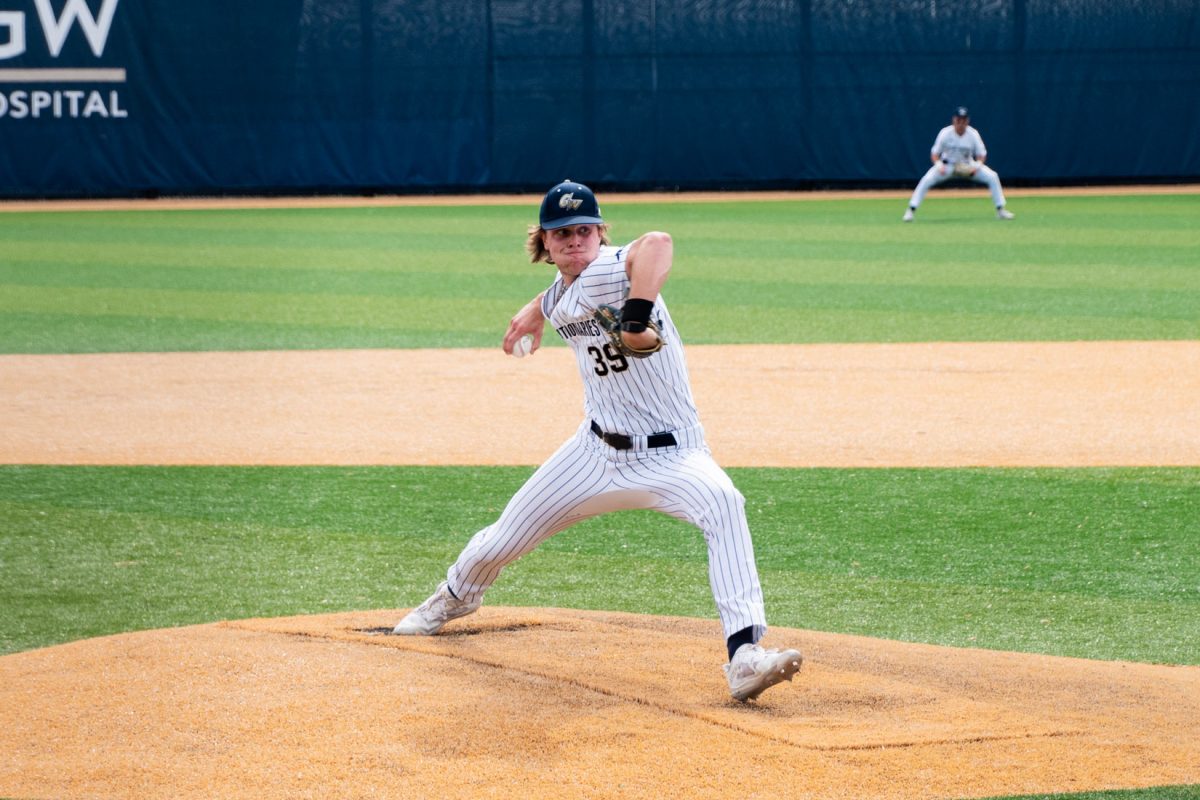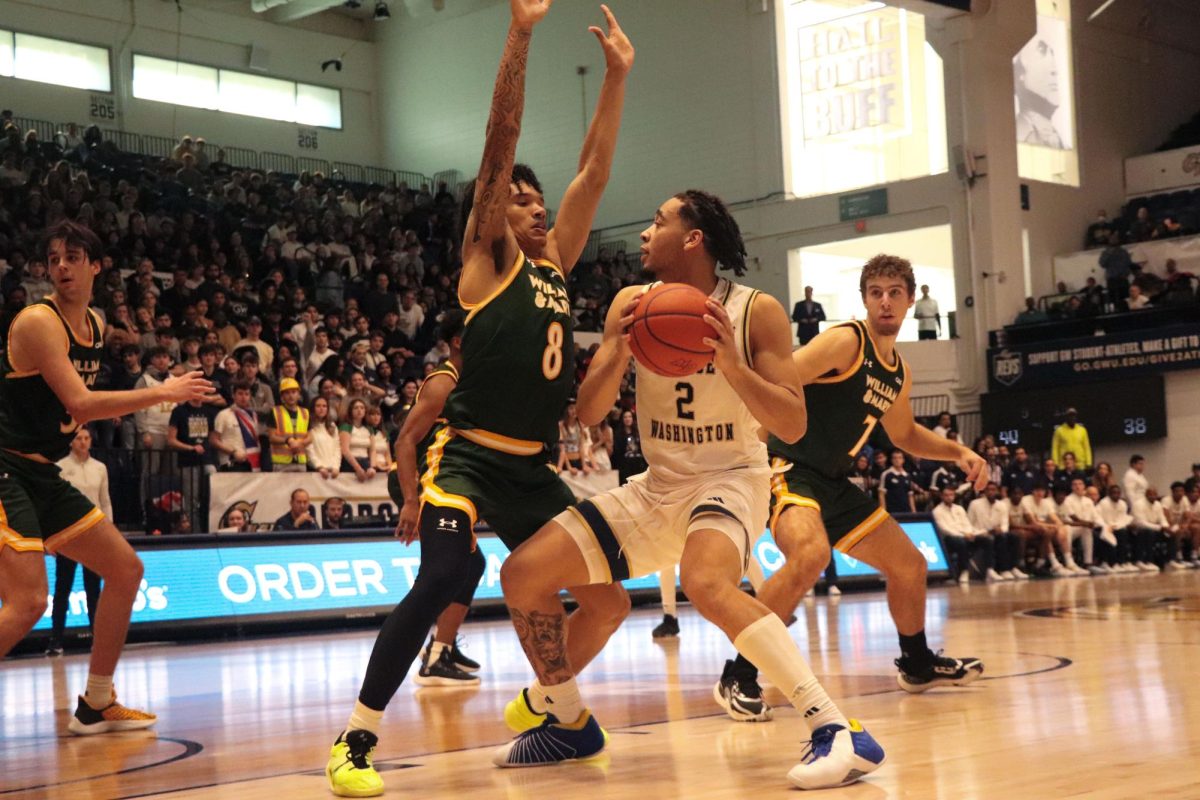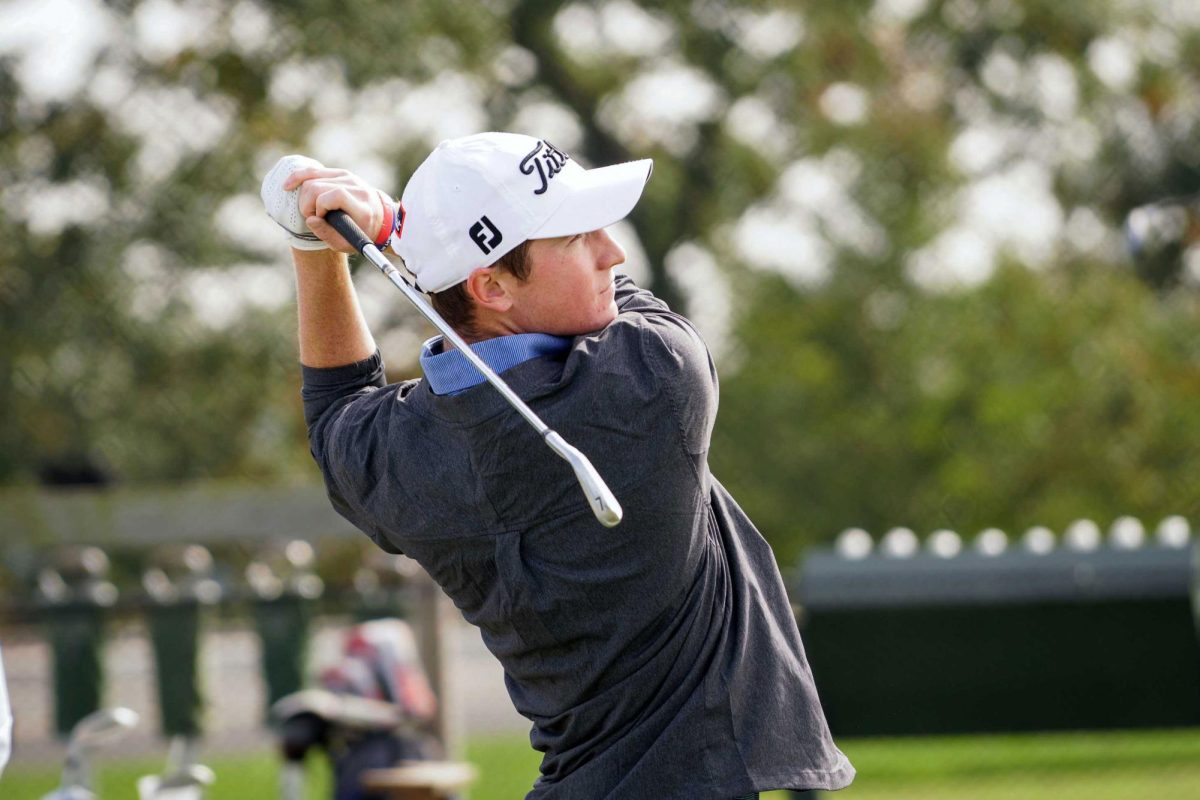Alumni, boosters and the money they donate play an integral role in collegiate athletics. Success generally requires a first-rate coach, quality facilities, solid equipment and the ability to travel. And all those things require money. But as 20th century poet Christopher Wallace once said, “Mo’ money, mo’ problems,” and at universities across the nation, that adage has held true in the recent past.
One such example is the University of Michigan, which found itself embroiled in a major booster scandal in the late 1990s because of one man’s illegally generous actions earlier in that decade.
While GW will never be the size of a major program like Michigan, the Colonials have experienced increased success over the past 10 years, leading to more boosters and more money. But with that growth, NCAA violations become a concern because the consequences of those violations can ruin a program.
“To be perfectly honest with you, we haven’t (had any problems), which is very unusual,” said Dom Perno, who is in charge of fundraising as GW’s assistant athletic director for athletic development. “Knock on wood, because it could happen any time, but we’ve been very fortunate to be able to control that situation for us.”
That control begins with Susie Jones, GW’s assistant athletic director in charge of compliance. Jones, who has been at the University for 15 years, makes sure all boosters know the rules through a mentoring program that educates the boosters, and she leaves her phone line open to anyone with questions.
“Usually the questions are regarding what the NCAA calls ‘extra benefits,'” Jones said. “A student athlete cannot receive a benefit that the University isn’t willing to give to all students. So the boosters’ questions are usually what they can and cannot do for student athletes in terms of giving them something.”
Director of Athletics Jack Kvancz emphasized that, almost always, the programs that get in trouble have boosters who are overzealous in their desire to do something nice for the players.
“But you can have all the right intentions in the world,” he said. “It may be the ballet is in town (and you say), ‘Wouldn’t Johnny or Mary really enjoy the ballet? And we’re helping their cultural experience.’ Well, yeah, they would. But guess what? You can’t.”
To make sure players are aware that a free trip to the ballet is off limits, GW has information sessions at the beginning of each season to cover NCAA rules and regulations.
“You have to constantly educate your players on that,” men’s basketball head coach Karl Hobbs said. “It has not been a problem here, but the thing I’m most nervous about is that the more successful you become, the more those things become a factor … Now you have to start dealing with agents and things of that nature, people trying to get next to your guys.”
One such player who may be drawing agents’ attention in the near future, sophomore Pops Mensah-Bonsu, said the athletes know the importance of their actions.
“A whole lot of people are willing to take you out to eat or to a game or something, but you can’t accept that kind of stuff because of the regulations,” he said. “So whenever that happens, we have to be careful and speak to the coaches about what we’re allowed to do and what we’re not allowed to do.”
As for the actual boosters, all of those interviewed said they didn’t see any advantage in breaking the rules.
“I have trouble totally agreeing with some of (the rules), but I’m not going to go out and break them,” said GW Archivist and booster G. David Anderson. “(I disagree with) the fact that we can’t even have a player over for dinner or anything of this nature, but that’s the way it is, so we abide by it. You don’t want to get the student in trouble or the program in trouble.”
Another problematic area involving boosters can come in the form of influence. When people consistently give money to a program over a prolonged period of time, or even just give one large sum, they can feel entitled to a certain degree of influence on the program. But again, GW seems to have avoided that problem, even with its largest donor.
“Tex Silverman, for instance – he’s an alumnus, he has a great love for the school, his family loves the school, and to be honest with you, he doesn’t even like to have his name mentioned,” Perno said. “Obviously he has his name on the (Smith Center) floor, which is significant and everybody knows that a generous gift was given for that, but it isn’t like he’s calling up every day and telling you, ‘Karl (Hobbs) better use this guy,’ or anything like that.”
Hobbs agreed.
“Nobody’s come to me to tell me how to coach my team and how to recruit or those sort of things,” he said. “It’s been fine so far, although I get a lot of e-mails on who should be playing and how to coach my team. I’m not sure if they’re boosters, though. I call them my assistant coaches.”
The final challenge universities face lies in the dispersal of booster donations. Perno estimated that 75 percent of the general fund goes to basketball, meaning GW’s 16 non-basketball sports receive a combined 25 percent. For this very reason, Perno said, GW created its “Friends of” funds, which act as a reserve fund for each individual sport. That way, if someone wants to donate money specifically to the “Friends of baseball” fund, then only the baseball team can use that money.
GW golf coach Scott Allen said this alleviates any grumbling from the other sports.
“The fact that we can fundraise money for our own programs, that puts the onus on (the coaches),” he said. “If I don’t feel like the University gives me enough money to have the program I want, I can fundraise money. And I fundraise about half the money (for) our annual operating budget each year.”
GW cross country head coach Deb Cane also said she doesn’t see a reason for the other sports to complain.
“There’s always going to be a hierarchy at any university in terms of how sports rank,” she said. “And a lot of that is based on the revenue they generate, so clearly the basketball team generates more money than the rest of the sports.”
The only booster-related problem any GW official or coach could think of is a problem every school wants.
Because the number of boosters has grown so dramatically in the last 10 years, the room in the Smith Center normally used for the Athletic Directors Club has become too small.
“It’s total chaos. It’s become almost unmanageable,” Perno said. “So what we’re thinking of is having two different groups because it’s become too successful, to be honest with you.”







